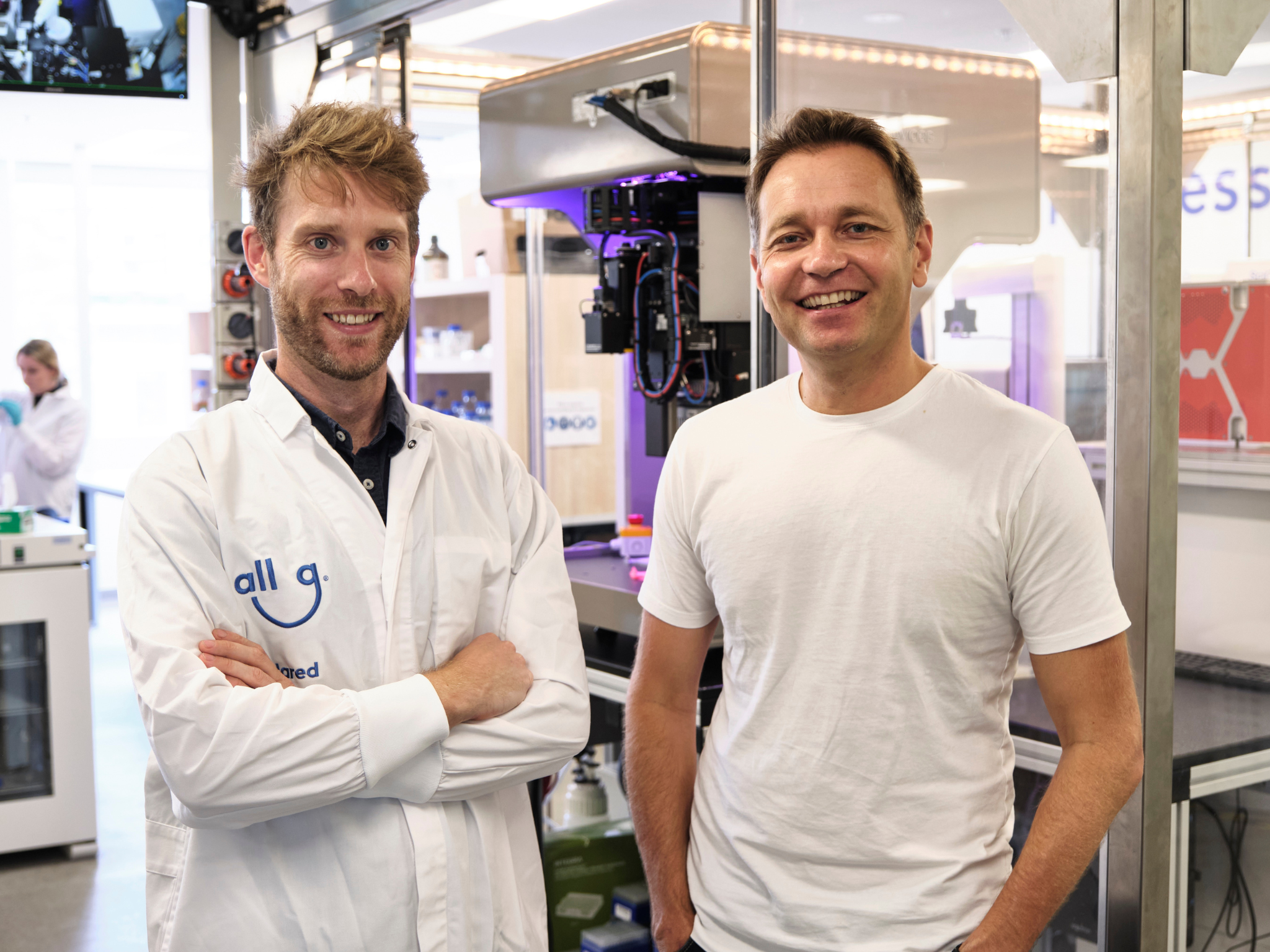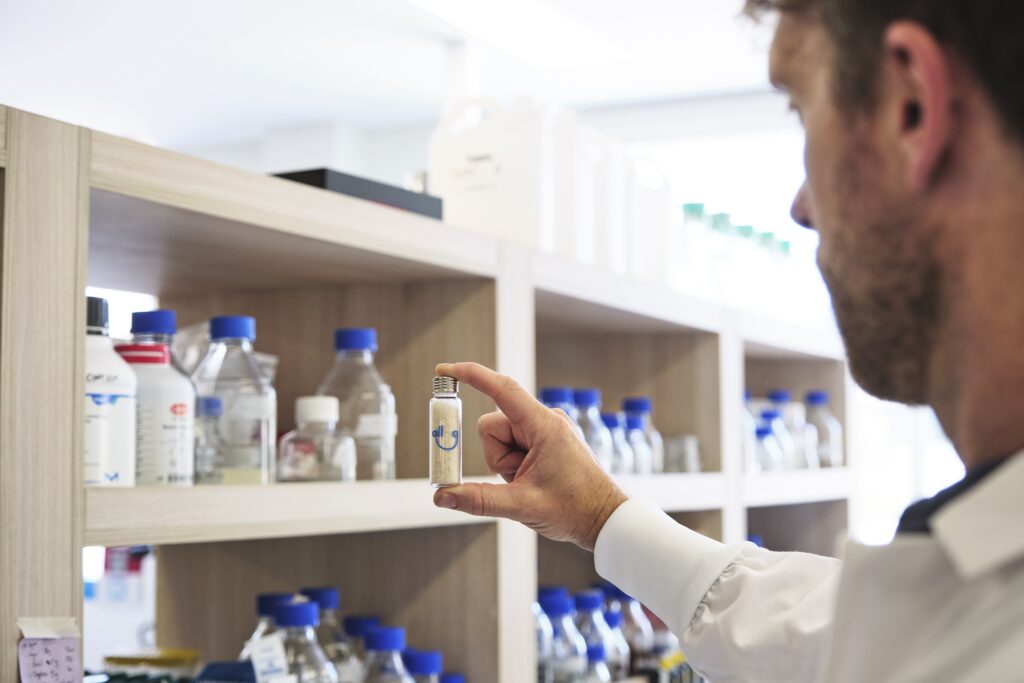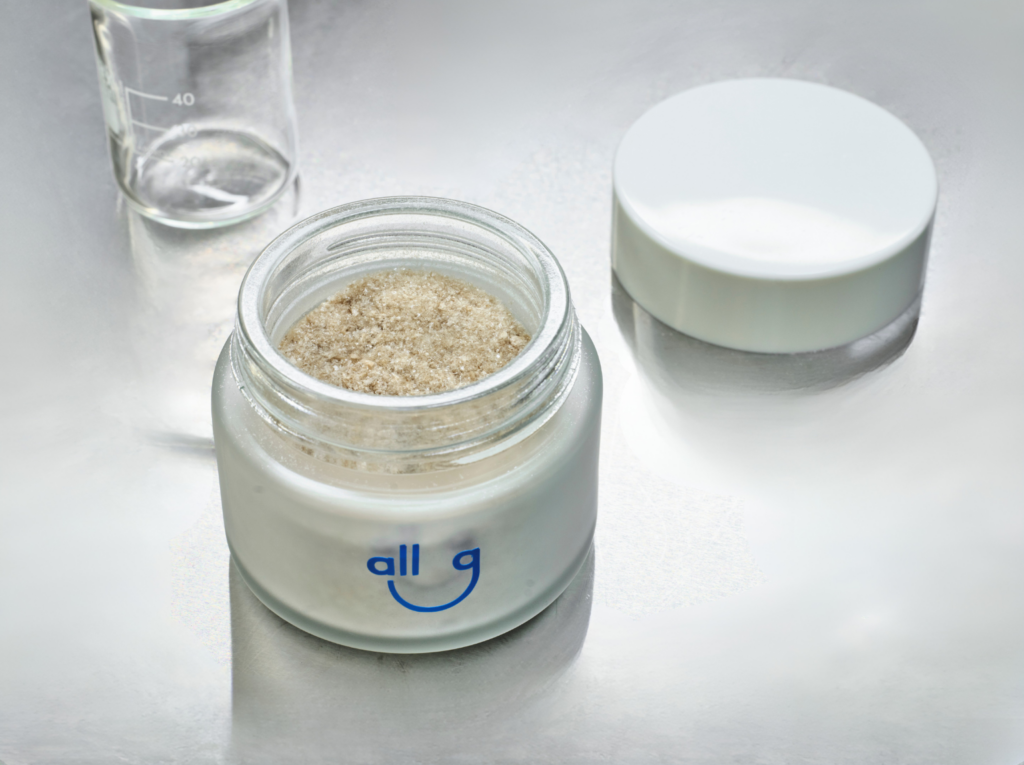
Australian precision fermentation firm All G is gearing up to launch its animal-free bovine lactoferrin in the US and China in Q4 2025.
Armed with regulatory clearance in both China and the US, precision fermentation startup All G is preparing to launch in both markets this year.
The firm makes a high-purity, functional lactoferrin protein that’s bioequivalent to its bovine counterpart, but ditches cows for microbes instead.
“We’re progressing commercial launches in both China and the US,” co-founder and CEO Jan Pacas tells Green Queen. “In the US, we hold self-GRAS determination for use in food and beverages. In China, we have strong local relationships, and our positioning in Australia simplifies access (through proximity and well-established trade relationships).”
He adds: “Bovine lactoferrin is a core commercial focus for us. It is already widely used across infant formula, functional foods, supplements, and personal care, with strong and growing global demand. Launching bovine lactoferrin first enables us to leverage existing markets, build market share, and establish strategic partnerships.”
All G is working with co-manufacturers for price-competitive lactoferrin

Founded in 2020, All G is developing a host of precision-fermented proteins, starting with lactoferrin, a whey protein found in both bovine and human milk.
The iron-regulating protein is renowned for its antiviral, antibacterial, immunity-boosting, and gut-strengthening properties. The ingredient is used to treat low iron levels during pregnancy, while lactoferrin supplements lower the risk of respiratory tract infections.
However, it’s present in small concentrations in cow’s milk, so extracting 1kg of purified lactoferrin requires at least 10,000 litres of milk. This drives up costs – ranging from $600 to $2,000 per kg – and makes its supply reserved for infant nutrition and supplements.
But several precision fermentation companies are targeting the protein for use in functional foods and drinks, protein powders, and sports and elderly nutrition. The technology involves inserting DNA into microbes to teach them to produce specific molecules when fermented.
In All G’s optimised upstream process, microorganisms secrete the lactoferrin into the fermentation media. The bioass is then separated and the lactoferrin purified through the same chromatography process used by the dairy industry. All G then removes the salt and dries it into a powder.
The company’s recombinant protein has exhibited high purity and bioactivity, equivalent iron saturation status, and native-like glycosylation patterns.
“We are working with a co-manufacturing partner, with the ability to scale production up and down to meet demand, an advantage of precision fermentation compared to animal-based production,” says Pacas. “We will be price-competitive with animal-derived lactoferrin, while offering premium features including high purity, customisable iron saturation, and animal-free production.”
All G is also working with the University of Queensland’s Food and Beverage Accelerator to expedite lactoferrin R&D. “This has been a great partnership – we have complementary capabilities and have been able to access multiple parallel bioreactors for bioprocess optimisation and the unique capabilities of Q-MAP, for metabolomics, proteomics and bioinformatics,” he says.
Human lactoferrin and casein to follow

Aside from bovine lactoferrin, All G is working on two other proteins. The company recently filed a patent for infant formula made with recombinant human lactoferrin. The whey protein is available in significantly larger concentrations in breast milk than in bovine colostrum, and All G’s regulatory wins for the dairy version in the US and China don’t yet cover infant nutrition.
As of late last year, it was already producing human lactoferrin on a grams per litre scale. Now, Pacas says All G is “making fast progress” and expects to launch this ingredient soon after the bovine version.
“Human lactoferrin is structurally identical to the protein found in breast milk, with distinct glycosylation and bioactivities compared to bovine lactoferrin. These factors make human lactoferrin preferential in natural applications such as infant and clinical nutrition, where there is scientific rationale and growing commercial demand,” he says.
Additionally, All G has applied for a patent covering the scalable production of human micellar caseins, which would be its third product. Casein accounts for 20-45% of the protein content in breast milk, provides essential amino acids, helps absorb calcium, and aids growth and development and satiety due to its slow digestion.
“Most infant formulas today rely on a combination of ingredients – typically demineralised whey powder, skim or whole milk (liquid or powder), whey protein concentrate, bovine caseins and free amino acids,” says Pacas.
“These components are used to adjust for the fact that cow’s milk is compositionally different from human milk – with a higher total protein content, a different whey-to-casein ratio, and a less optimal amino acid profile. Bovine caseins also differ in both structure and function from human caseins and are typically not present in micellar form,” he explains.
Producing human caseins in their native micellar form allows All G to more closely replicate the structural and functional properties of human milk, without the need to artificially adjust protein ratios or add free amino acids. “This is expected to support improved digestibility, mineral transport, and nutrient absorption in early life,” Pacas says.
Asked about the company’s regulatory plans for these proteins, he reveals: “We are progressing regulatory submissions across multiple geographies in parallel. Our global strategy includes the US, China, Australia/New Zealand, and the EU, aligned with our product timelines.”
The global outlook is in line with its strategy for bovine lactoferrin, for which it has “secured customers and aligned multiple distributor partnerships across several countries, including in China, Japan, and South Korea”.
To date, All G has secured $30M from investors. “We’re currently raising additional capital to expedite parallel commercialisation of our multiple precision-fermented proteins,” says Pacas.
It is one of only two companies approved to sell precision-fermented lactoferrin, with Singapore’s TurtleTree the first to receive the green light in the US. Several others are working on recombinant bovine or human versions of the protein, including Helaina, Eden Brew, PFx Biotech, Daisy Lab, De Novo Foodlabs and Eclipse Ingredients.
The post Australia’s All G to Launch Cow-Free Lactoferrin in US & China This Year appeared first on Green Queen.
This post was originally published on Green Queen.